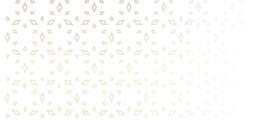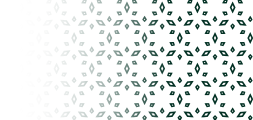George Jerdak and the Imam (Part 3)
How did Jeradak know the imam, and why did he love him so much, give him all this status, and write all these pages about him? When was the beginning? What are its phases?
Experts mentioned that Jerdak’ s knowledge of the imam began early, and this knowledge remained, continued and renewed, but did not stop. This knowledge can be controlled and identified in three basic stages, where Jeradak knew the imam since he was a young child, credits goes back to his elder brother, the poet Fouad Jardak, who helped him to get acquainted with the book (Nahj al-Balaghah), which he brought it to him, encouraged him to read it, and asked him to memorize as much of it as possible, after he knew his love for poetry and literature.
During school days, the child George would run away from school whenever he had the opportunity, go and sit between the trees and springs of his region of Marjayoun, in the far south of Lebanon, to start voraciously reading in Nahj al-Balagha.
And since the memory of Jerdak was as good as he describes it, as soon as he reached the age of thirteen, he memorized a lot of (Nahj al-Balagha), and these archives remained stored in his memory and did not get scattered.
Moreover this trend was reinforced by Jaradak and became entrenched as a result of the repeated audio-visual scenes that were passing by him in his familys home, as he watched and listened to his brother Fuad as he unroll to the ears of visitors to the house his many poems about the imam, dealing with his genius, the sublime of his thought and his human greatness, in addition to talking about his honorable biography. From his father, a construction engineer, he saw his hand carving the imam’s words on stone.
These attitudes and scenes painted in the imagination of Jeradak an initial image of a great man that remained in his memory, and took root with the passage of days and increased.
When Jerdak moved to Beirut to continue his studies and enrolled at the Patriarchal College in 1949 AD, there was among his professors who wrote on Nahj al-Balagha and about the genius of the Imam.
The study in this college represented an important milestone in Jeradaks biography and in the development of his intellectual and literary experience.
After graduating from the faculty, Jeradak practiced besides writing, teaching in some institutes of Beirut in 1953 AD, committed to the subjects of Arabic literature and Arab philosophy. Through these two subjects Jaradak renewed his relationship with the imam, as he found according to the scheduled program that the literary and intellectual product of the Imam is required in these two subjects. Then he saw that the thoughts and feelings he had kept since his childhood were insufficient in the field of teaching, which motivated him to revisit the life of the Imam and his literary and intellectual legacy.
With the motivation of teaching and deepening knowledge, Jaradak began to read what was written about the imam in the writings of the past and contemporary, so he came out with impressions that were satisfactory to him. However he did not find in them what he was looking for, and he saw that Ali is higher and greater than what was mentioned in these books, for they do not present him to human thought in general, to all people, and did not do justice to him as it should.
Furthermore it became clear to Jarradak after reading these books, that most of them revolve around historical matters limited to a specific time and place, and it may mean a group of people in some stages of history and does not concern all people at all times, most of them revolve around the imam’s right to caliphate and the amount of this right in the eyes of the authors. According to him each of these authors have motives for his movement, and it has no firm relationship with the objectivity that revolves within the domain of Alawite thought, the imam’s view of the meaning of existence and its constant laws, and the conditions of life that must be fulfilled in the human society to be a society that is sound in its formation, healthy in its path, generous in its purpose.
In light of this impression, Jaradak decided to return back again to (Nahj al-Balagha), seeking a conscious reading that would be more fulfilling than his old reading at that early age. When he read it again, it became clear to him that the Imam was deeper and greater than all that the research of writers and researchers, ancient and modern, revolved around. In contrast to these, he found that the Imam’s humanity, with all its elements and pillars, stems from a clear thought and a deep sense of the true meaning of existence, and that what he called to by his principles and his life transcends the limits of the settings to every time and place.
From here, Jaradak decided to wage the battle himself, and motivated by his love for the truth, to write an encyclopedic book about the imam, in which there is some awareness of this great personality and some fairness, and remedy what the authors had neglected before him, so his book came out with its bright title, eloquent with its statement, amazing by its facts, manifested in its humanity. Also Jeradak considered it among all his writings as a publication which is sticking to its depths.





